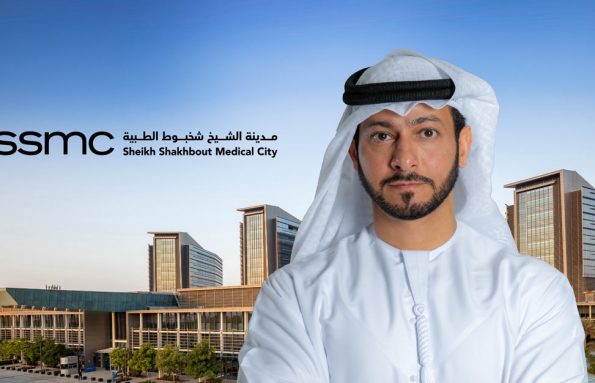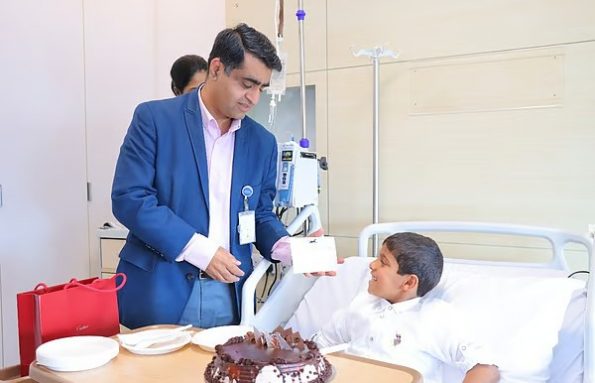Innovative AI detection technology projected to decrease the risk of colon cancer deaths by up to 50%
Abu Dhabi, United Arab Emirates. Sept. 22, 2021:
The gastroenterology team at Abu Dhabi-based Sheikh Shakhbout Medical City (SSMC), one of the UAE’s largest hospitals for serious and complex care and a joint-venture partnership between Mayo Clinic and Abu Dhabi Health Services Company (SEHA), has introduced a cutting-edge AI system for gastrointestinal intestinal endoscopy that significantly enhances the detection of pre-cancerous polyps of the colon.
This FDA and UAE-approved system, known as GI Genius, is an AI solution designed to assist in colonoscopy procedures, and will be available at SSMC’s Gastroenterology Division, led by Dr. Michael Wallace. During his role as Professor of Medicine and Director of Procedural Innovation at Mayo Clinic, U.S., Dr. Wallace utilized the technology for two years during its trial in Europe and was also the principal investigator in a US randomized controlled study with the FDA.
Dr. Michael Wallace, Consultant and Chair of Gastroenterology Division at SSMC said, “Our controlled trials showed that this technology significantly increases our ability to find precancerous polys of the colon, allowing us to remove those polyps and prevent them from becoming malignant. During trials, we showed one of the highest increases in polyp detections of any technology that is geared towards detection, and we are now lucky enough to have brought the now approved system to our facility for patients to benefit from our long-held expertise and experience in using the technology.”
While the technology is similar to augmented reality, it is steered and operated by a doctor who drives the endoscope and removes the polyps, using the AI technology as a supplemental, augmented visual cue to identify pre-cancerous polyps, some of which are very difficult to see. A certain type of polyp, known as a flat polyp, is very subtle and easily missed, which is why an augmented AI system can offer substantial aid in flagging their presence during colonoscopy procedures. Doctors driving the endoscope will view the procedure on an augmented video screen.
“This technology has shown exceptional results in terms of efficacy as well,” continues Dr. Wallace. “The most important measure of efficacy for endoscopies is how well the technology increases the adenoma detection rate, which denotes the rate at which we detect pre-cancerous polyps in the colon. The more adenomas (polyps) you find and remove, the more you prevent colon cancer.”
Typical medical examinations show these sites of pre-cancerous growth in about 30 to 40% of individuals. The AI technology increases that to approximately 50% to 55% of individuals, significantly increasing the adenoma detection rate. This is toted as a good benchmark, as for every 1% increase in the adenoma detection rate, the risk of getting colon cancer is reduced by 3%, and the risk of death from colon cancer is reduced by 5%. With a 15% increase that translates into a 10% decrease in adenoma detection, this will result in a 30% decrease in the risk of colorectal cancer, and a 50% decrease in the risk of death from colon cancer.
“The scope and potential for AI is quite significant, with the potential to use these technologies for many applications. While it is currently approved as a supplementary tool, I do believe that the uses of AI broadly can potentially be very substantial, and it is important for the world to note that we use AI in a way that is constructive and safe,” concludes Dr. Wallace.






